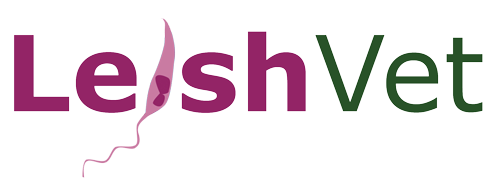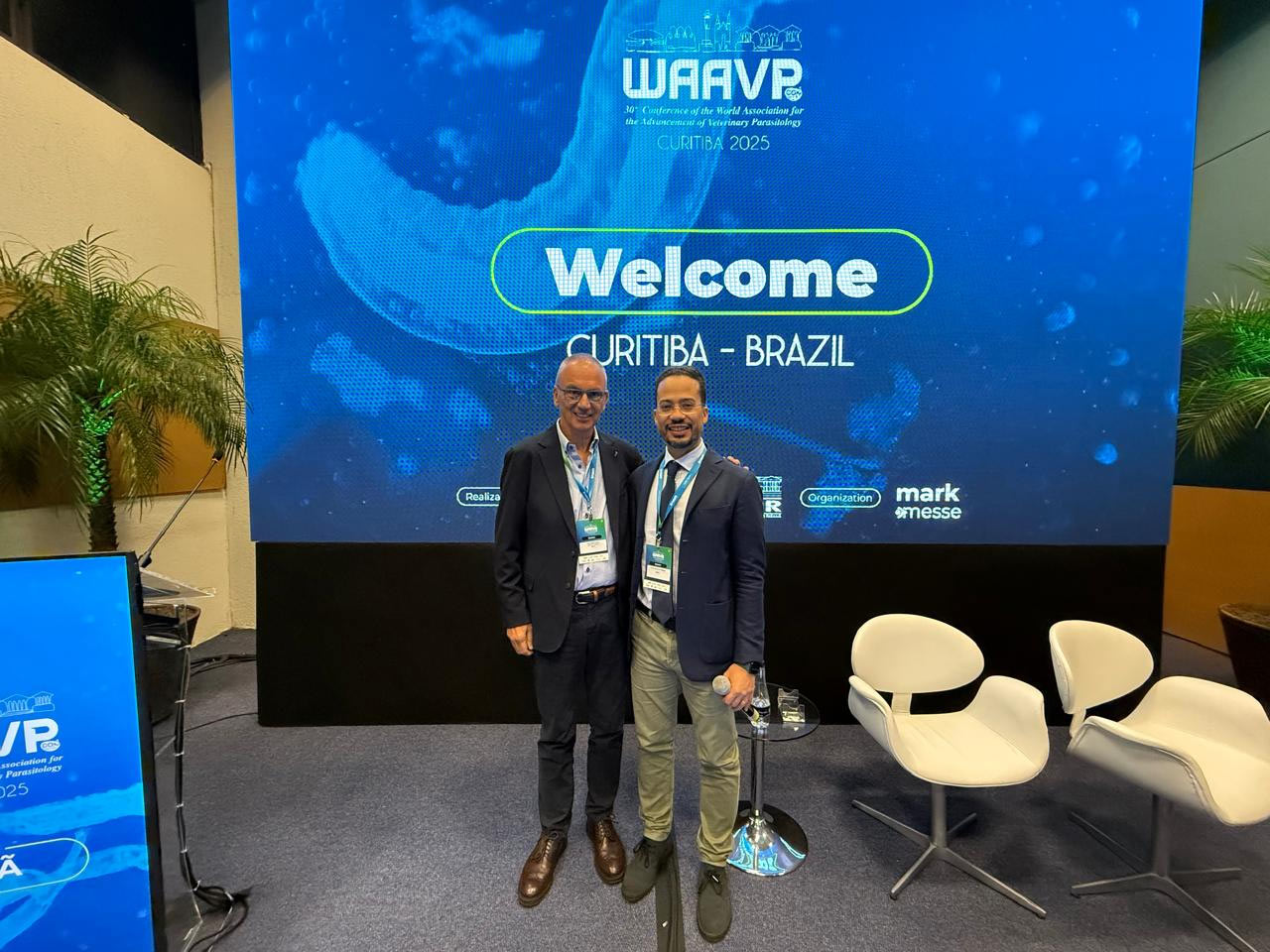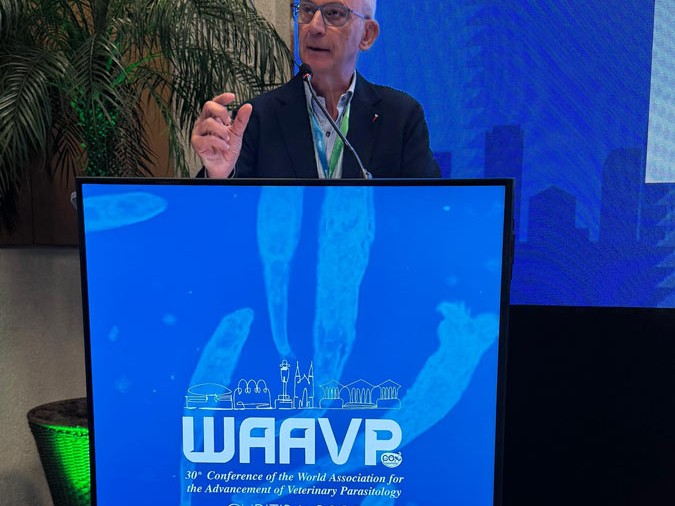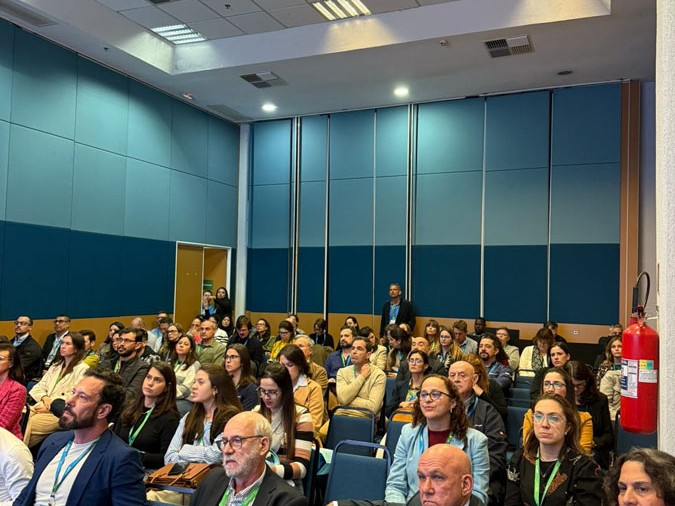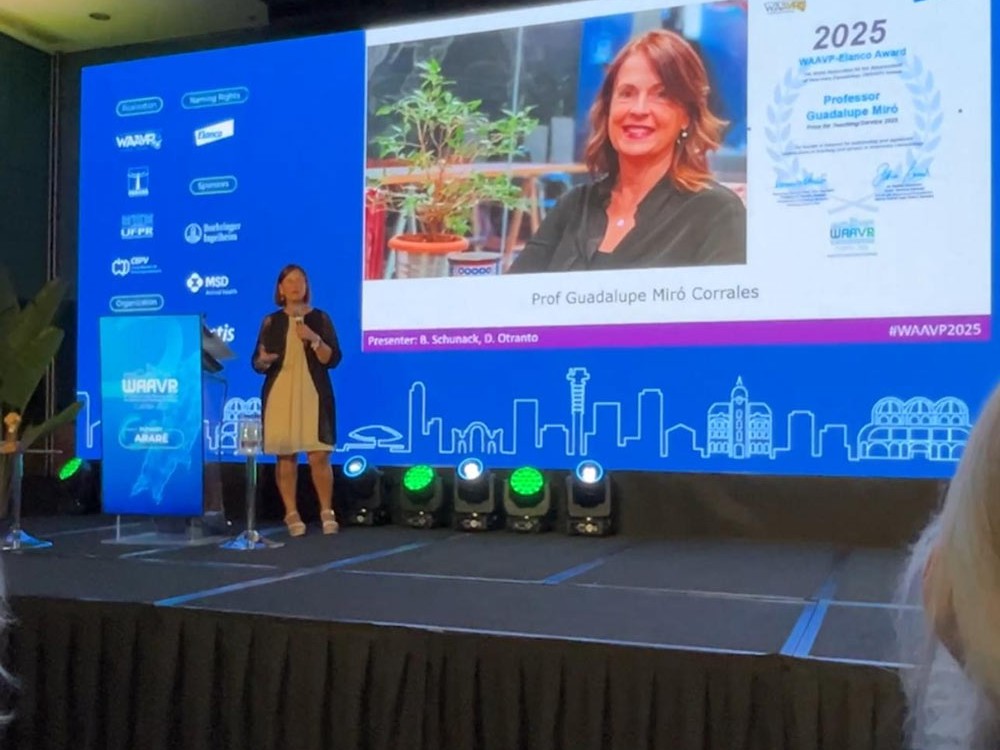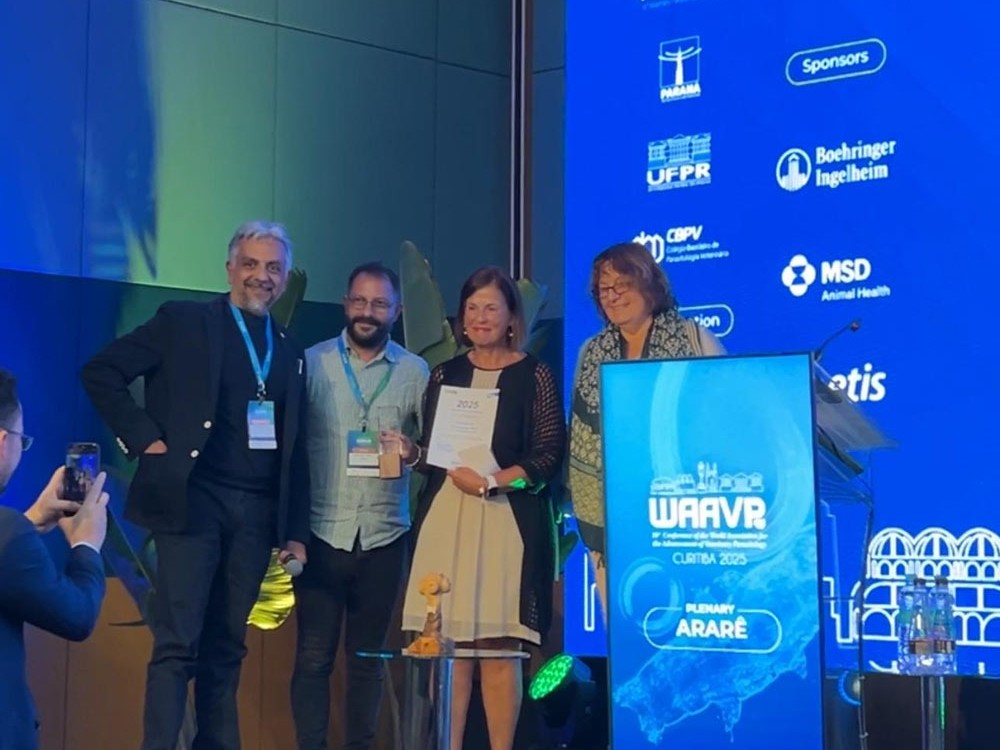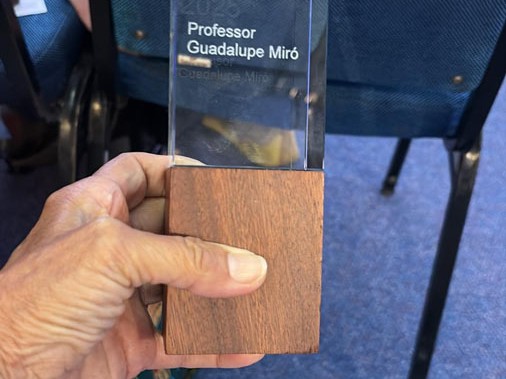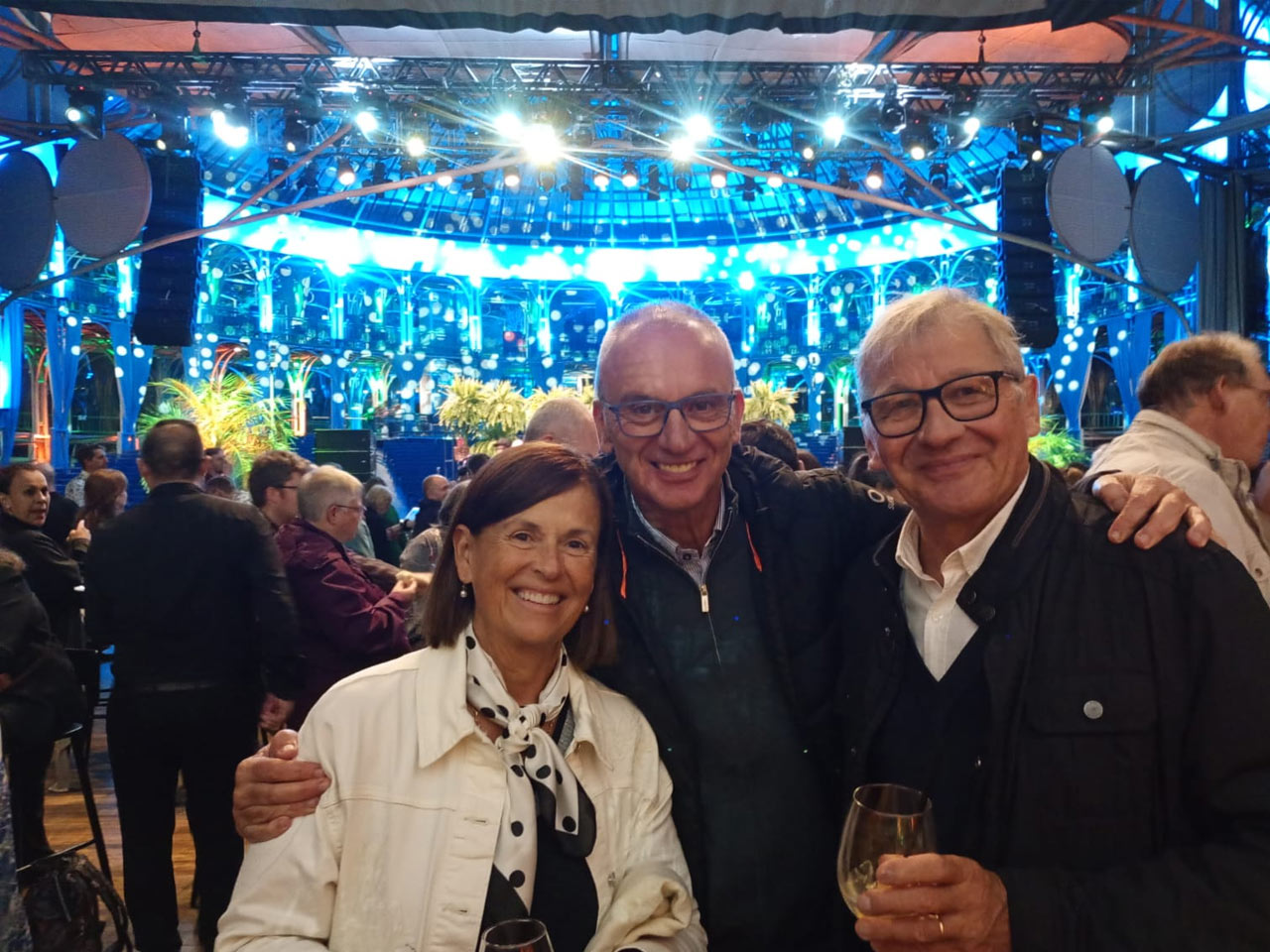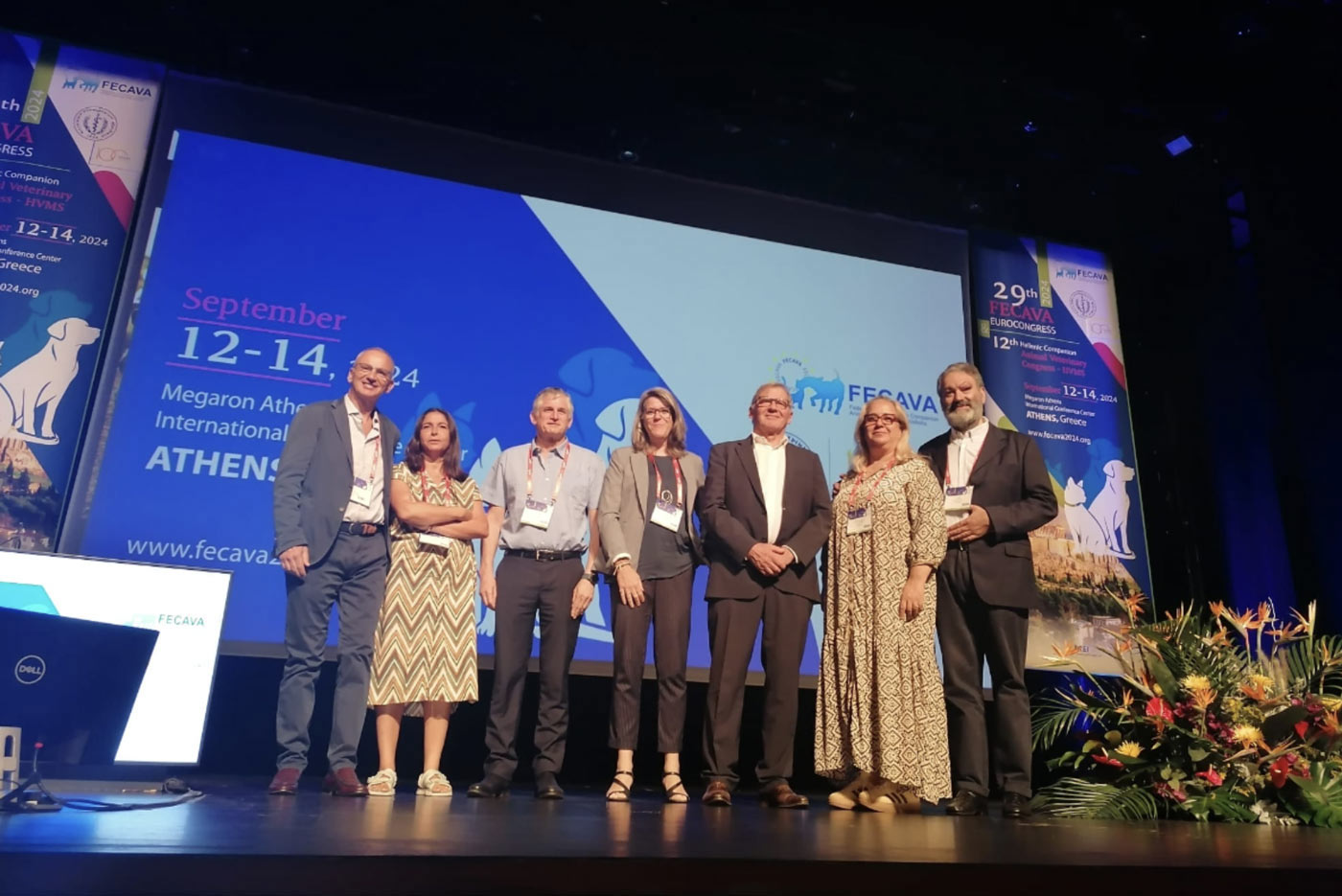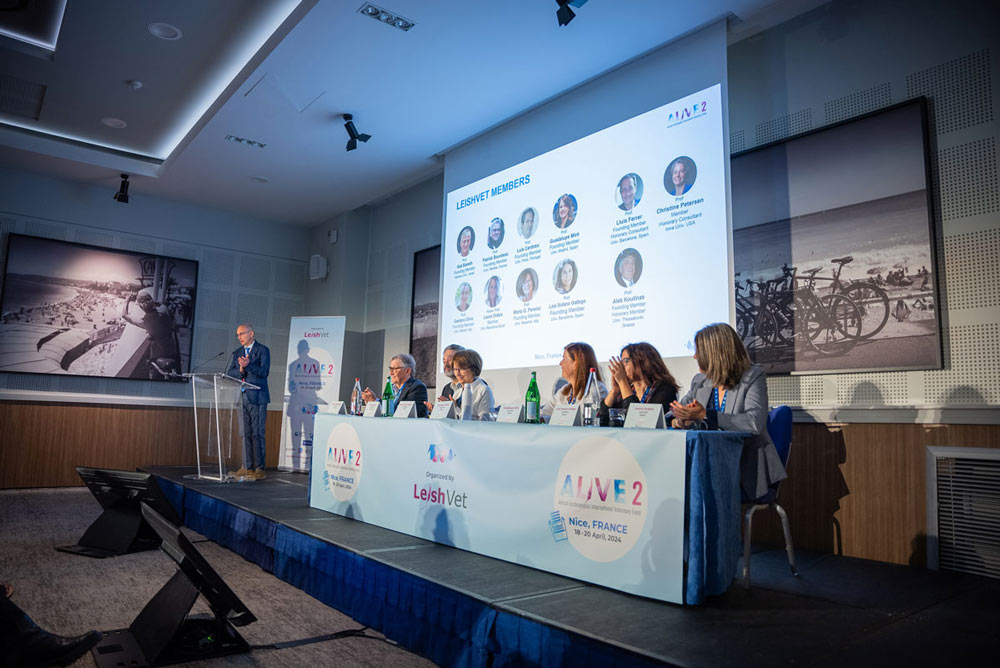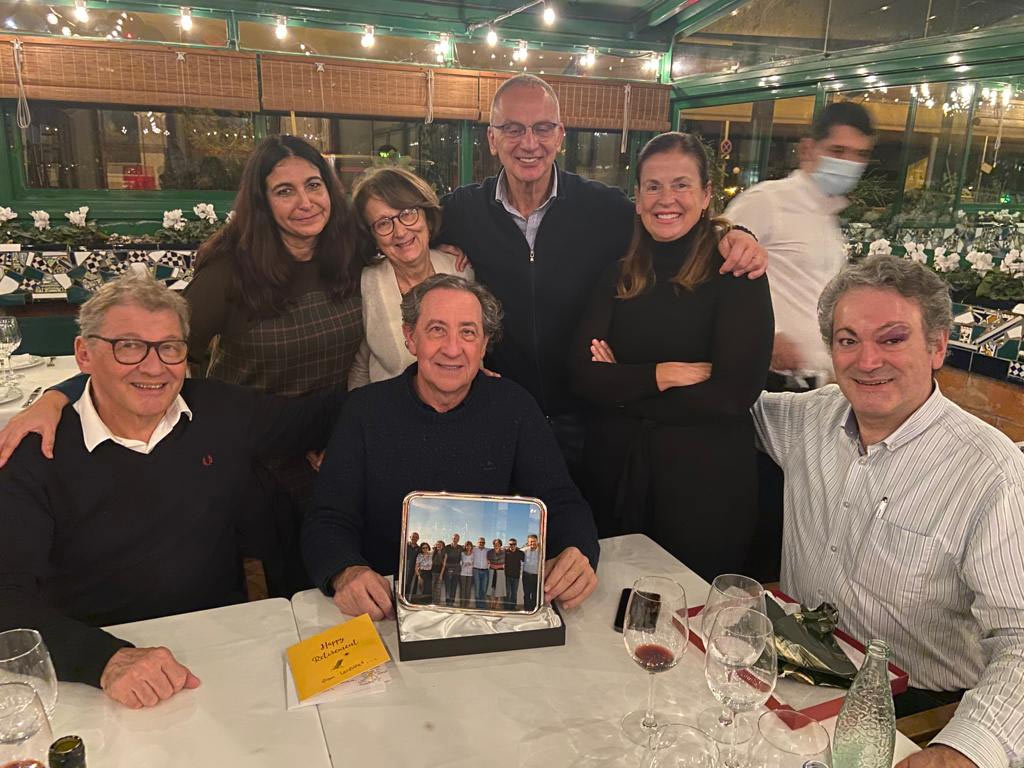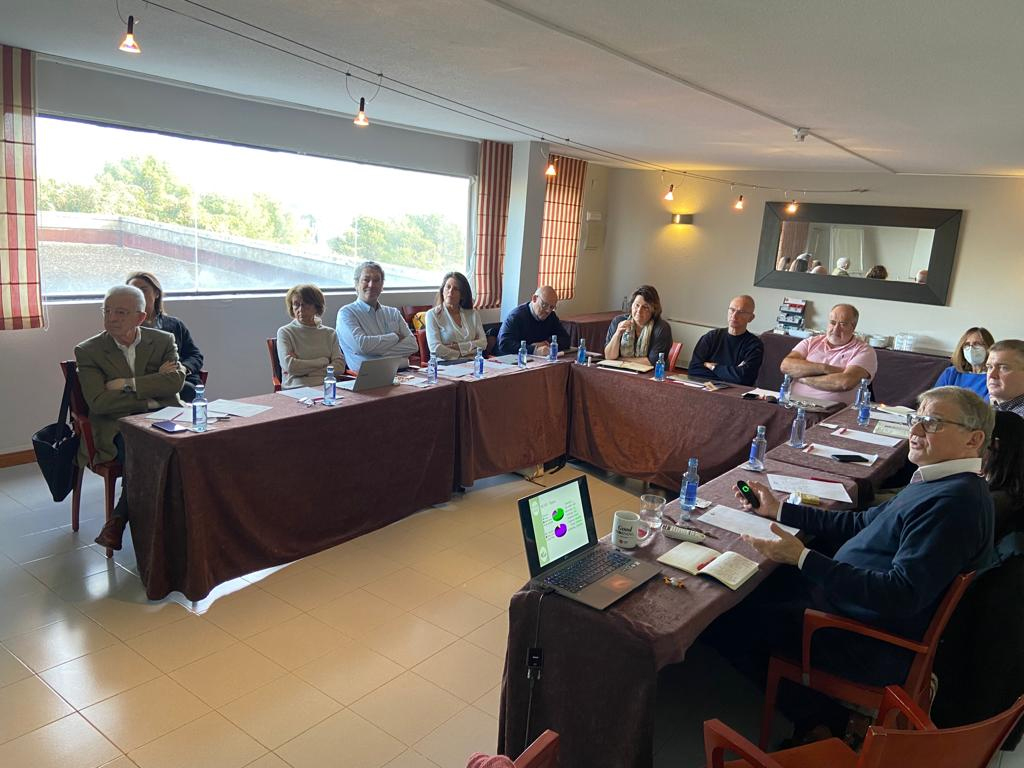Christine Petersen
Pilar Vidueira
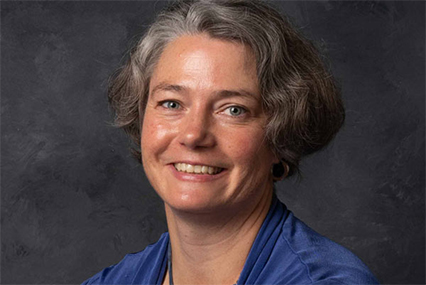
Graduated with her DVM from Cornell University in 1998, and completed her PhD in Immunology and Infectious Diseases at Harvard School of Public Health in 2004
With the first seeds planted as a veterinary student doing a summer research project on African Trypanosomiasis in Nairobi, Kenya, Dr. Petersen’s scientific career has focused on the prevention of zoonotic diseases, which primarily focuses on leishmaniasis. Dr. Petersen is now director of the Center for Emerging Infectious Diseases, a “One Health” collaboration between the Iowa Department of Public Health and regents colleges of Medicine, Public Health (UIowa) and Veterinary Medicine (ISU). As an Associate Professor at University of Iowa, College of Public Health, she also teaches joint veterinary, medical and global public health coursework and conducts outreach related to the diagnosis, treatment, and prevention of zoonotic diseases within animal and human populations. Additionally, she collaborates with the Iowa State University animal shelter medicine program, populations ripe for spread of zoonotic infectious diseases. Her interest in ‘One Health’ was started while a veterinary student by a cadre of veterinarians working in global developing areas. Her active research group is focused on the long term goal of understanding how to best alter the immune response to Leishmania species for effective treatment or vaccination against chronic intracellular diseases.
Esch, K. J., Schaut, R. G., Lamb, I.M., Whitley, E.M.., Jeronimo, S. M.B., Haynes, J.S., Petersen, C.A. (2015) “Mechanisms of Leishmania infantum-associated type II membranoproliferative glomerulonephritis: engagement of autophagy and the inflammasome.” Am. J. Path., (2015) Aug;185(8):2105-17. doi: 10.1016/j.ajpath.2015.04.017.
Esch, K. J., Juelsgaard, R.M., Martinez, P., Jones, D.E., Petersen, C.A. (2013) “Programmed Death-1 mediates CD4+ T cell exhaustion in visceral Leishmaniasis.” Journal of Immunology, Vol. 191, 5542-5550.
3. Boggiatto, M.P., Gibson-Corley, K. N., Metz, K., Gallup, J., Hostetter, J.M., Mullin, K., Petersen, C.A. (2011) “Vertical transmission of Leishmania infantum in naturally-infected Foxhounds in North America.” PLoS Negl. Trop.Dis. 5(4): e1019. doi:10.1371/journal.pntd.0001019.
4. Boggiatto, M.P., Ramer-Tait, A.E., Gallup, J., Gibson-Corley, K.N., Metz, K., Kramer, E.E., Hostetter, J.M., Jones, D.E., Petersen, C.A. (2010) “Immunologic indicators of clinical progression during canine Leishmania infantum infection.” Clin. Vacc. Immunol., Vol. 17(2), 267-73.
Laia Solano-Gallego
Pilar Vidueira
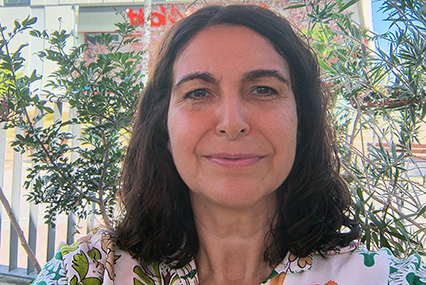
Current Position: Full professor
Dep. Medicina i Cirurgia Animals
Facultat de Veterinaria
Universitat Autònoma de Barcelona.
08193 Cerdanyola del Valles, Barcelona, Spain
ORCID number: 0000-0001-8479-4896
1996
Doctor of Veterinary Medicine (DVM)
Facultat de Veterinaria, Universitat Autònoma de Barcelona (UAB).
1998
Master of Veterinary Medicine, UAB.
2001
Ph.D. UAB.
2006
Certified as Diplomate of European College of Veterinary Clinical Pathology (ECVCP). By board examination
1996-1997 (3 months)
Veterinary Intern (receiving and managing clinical cases)
Veterinary Teaching Hospital
Faculty of Veterinary Medicine
UAB, Spain
2001-2002 (1 year)
Postdoctoral Researcher
Unit of Veterinary Pharmacology
Dept. of Pharmacology, Therapeutic and Toxicology
Faculty of Veterinary Medicine
UAB, Spain
2001-2002 (1 year)
Associate Professor (A3 4)
Unit of Veterinary Pharmacology
Dept. of Pharmacology, Therapeutic and Toxicology
Faculty of Veterinary Medicine
UAB, Spain
2002-2003
Postdoctoral Research Associate
Topic of the postdoctoral research: Feline and Canine Vector-borne diseases
Dept. of Clinical Sciences
College of Veterinary Medicine
North Carolina State University, USA
2003-2004 (1 year)
Small Animal Medicine Internship
Veterinary Teaching Hospital
School of Veterinary Medicine
Purdue University
West Lafayette, Indiana, USA
2004-2007
Clinicopathological and research activity
Clinica e Laboratorio Veterinari privati “San Marco”
Padova, Italy
2005 (7 weeks)
Clinical Pathology training
Veterinary Teaching Hospital
Clinical Pathology service
School of Veterinary Medicine
Purdue University
West Lafayette, Indiana, USA
November 2007–December 2011
Lecturer in Veterinary Clinical pathology
Clinicopathological diagnostic service
Royal Veterinary College
University of London, UK
January 2012-March 2017
Senior Researcher
Dep. Medicina i Cirurgia Animals
School of Veterinary Medicine
UAB
March 2017-May 2021
Associate professor
Dep. Medicina i Cirurgia Animals
School of Veterinary Medicine
UAB
Dr. Laia Solano-Gallego received her DVM degree from the Autonomous University of Barcelona (UAB) in 1996. Her PhD concerned the immunology and diagnosis of canine leishmaniosis from the same University from 1997-2001. She did a post-doctoral clinical research in vector borne diseases of dogs and cats at the School of Veterinary Medicine of the North Carolina State University (USA) during 2002-2003. She did a small animal rotating internship at the Veterinary Teaching Hospital of the Purdue University (USA) during 2003-2004. Dr. Solano-Gallego worked at the private hospital and laboratory of San Marco (Padova, Italy) where she performed clinicodiagnostic activity and clinical research in clinical pathology and internal medicine with predominant interest in vector borne diseases of dogs and cats during 2004-2007. She is Diplomate of European College of Veterinary Clinical Pathology (ECVCP) since 2006. She was a Lecturer in Veterinary Clinical Pathology at the Royal Veterinary College (RVC) of University of London during 2007-2011. Currently, she is a full professor at UAB.
Dr. Laia Solano-Gallego’s research interests focus on the pathogenesis, immunology, diagnosis, clinical aspects, treatment and prevention of veterinary and zoonotic vector-borne infectious diseases including leishmaniosis.
Dr. Laia Solano-Gallego heads a laboratory for the research of vector-borne diseases. Dr. Laia Solano-Gallego’s research is funded by several international and national funding agencies including the Spanish government and several private pharmaceutical companies. She has extensive research collaborations with the Royal Veterinary College (University of London), Università di Messina (Italy), Charles University (Prague), Hellenic Pasteur Institute (Greece) and other national, European and American Veterinary Schools and Universities.
2005
Membership of European Society of Veterinary Clinical Pathology
2006
Membership of European College of Veterinary Clinical Pathology
2007
Founder member of LEISHVET
170 manuscripts published in peer reviewed international journals, four books, more than 21 book chapters, many oral communications and poster and lectures as invited speaker in national and international congresses.
ORCID number: 0000-0001-8479-4896. https://orcid.org/0000-0001-8479-4896
- SOLANO-GALLEGO L., LLULL J., RAMOS G., RIERA C., ARBOIX M., ALBEROLA J., FERRER L., 2000. The Ibizian hound presents a predominant cellular immune response against natural Leishmania infection. Veterinary Parasitology, 90: 37-45.
- SOLANO-GALLEGO L., MORELL P., ARBOIX M., ALBEROLA J., FERRER L., 2001. Prevalence of Leishmania infantum infection in dogs living in an area of canine leishmaniasis endemicity using PCR on several tissues and serology. Journal of Clinical Microbiology, 39: 560-563.
- SOLANO-GALLEGO L., Riera C., Roura X., Iniesta L., Gallego M., Fisa R., Valladares J.E., Castillejo S., Alberola J., Ferrer L., Arboix M., Portús M., 2001. Leishmania infantum specific total IgG, IgG1 and IgG2 subclasses in naturally and experimentally infected dogs with and without treatment. Veterinary Parasitology, 96: 265-276.
- SOLANO-GALLEGO L., RODRIGUEZ A, INIESTA L, ARBOIX M, PORTUS M, ALBEROLA J., 2003. Detection of anti-Leishmania immunoglobulin G antibodies in urine specimens of dogs with leishmaniasis. Clinical Diagnostic Laboratory Immunology, 10: 849-855.
- SOLANO-GALLEGO L., FERNANDEZ-BELLON H, MORELL P, FONDEVILA D, ALBEROLA J, RAMIS A, FERRER L., 2004. Histological and immunohistochemical study of clinically normal skin of Leishmania infantum-infected dogs. Journal of Comparative Pathology, 130:7-12.
- SOLANO-GALLEGO L., LLULL J., RAMIS A., FERNANDEZ-BELLON H., RODRIGUEZ A., FERRER L., ALBEROLA J., 2005. A longitudinal study of serology and leishmanin skin test on dogs living in a high endemic area of leishmaniasis in Spain. American Journal of Tropical Medicine and Hygiene, 72: 815-818.
- ORDEIX L., SOLANO-GALLEGO L., FONDEVILA D., FERRER L., FONDATI, A., 2005. Papular dermatitis due to Leishmania in dogs with parasite-specific cellular immune response. Veterinary Dermatology, 16:187-91.
- FERNÁNDEZ-BELLON H., SOLANO-GALLEGO L., BARDAGI M., ALBEROLA J., RODRÍGUEZ A., RAMIS A., FERRER LL., 2006. Immuneresponses to Leishmania infantum in healthy horses in Spain. Veterinary Parasitology, 135: 181-185.
- SOLANO-GALLEGO, L., RODRÍGUEZ, A., INIESTA, L., QUINTANA J., PASTOR, J., ESPADA, Y., PORTÚS, M., ALBEROLA, J. 2007. Cross-sectional serosurvey of feline leishmaniasis in ecoregions around northwestern mediterranean. American Journal of Tropical Medicine and Hygiene, 76:676-680.
- RODRÍGUEZ-CORTES, A., FERNÁNDEZ-BELLÓN, H., RAMIS, A., FERRER L, ALBEROLA, J., SOLANO-GALLEGO, L. 2007. Leishmania-specific isotype levels and their relationship with specific cell-mediated immunity parameters in canine leishmaniasis. Veterinary Immunology and Immunopathology, 116:190-198.
- SOLANO-GALLEGO L., RODRÍGUEZ-CORTES, A., TROTTA, M., ZAMPIERON C., RAZIA L., FURLANELLO T., CALDIN, M., ROURA, X., ALBEROLA, J., 2007. Detection of Leishmania infantum DNA by fret-based real time PCR in urine from dogs with natural clinical leishmaniosis. Veterinary Parasitology, 147:315-319.
- TODOLÍ F, SOLANO-GALLEGO L, DE JUAN R, MORELL P, NÚÑEZ MC, LASA R, GÓMEZ-SEBASTIÁN S, ESCRIBANOJM, JORDI ALBEROLA, RODRÍGUEZ-CORTÉS A., 2010. Humoral and in vivo Cellular Immunity against the Raw Insect-derived Recombinant Leishmania infantum antigens KMPII, TRYP, LACK and papLe22 in Dogs from an Endemic Area. Am J Trop Med Hyg 83(6):1287-1294.
- SHERRY K, MIRÓ G, TROTTA M, MIRANDA C, MONTOYA A, ESPINOSA C, RIBAS F, FURLANELLO T, SOLANO-GALLEGO L. 2011. A Serological and Molecular Study of Leishmania infantum Infection in Cats from the Island of Ibiza (Spain). Vector Borne Zoonotic Dis. 11(3):239-245.
- LOMBARDO G, PENNISI MG, LUPO T, MIGLIAZZO A, CAPRÌ A, SOLANO-GALLEGO L. 2012. Detection of Leishmania infantum DNA by real-time PCR in canine oral and conjunctival swabs and comparison with other diagnostic techniques. Vet Parasitol. 184(1):10-7.
- SOLANO-GALLEGO L, ROSSI L, SCROCCARO AM, MONTARSI F, CALDIN M, FURLANELLO T, TROTTA M. 2012. Detection of Leishmania infantum DNA mainly in Rhipicephalus sanguineus male ticks removed from dogs living in endemic areas of canine leishmaniosis. Parasites and vectors 5:98.
- SOLANO-GALLEGO L, VILLANUEVA-SAZ S, CARBONELL M, TROTTA M, FURLANELLO T, NATALE A. 2014. Serological diagnosis of canine leishmaniosis: comparison of three commercial ELISA tests (Leiscan, ID Screen and Leishmania 96), a rapid test (Speed Leish K) and an in-house IFAT. Parasit Vectors. Mar 24;7:111.
- LOMBARDO G, PENNISI MG, LUPO T, CHICHARRO C, SOLANO-GALLEGO L. 2014. Papular dermatitis due to Leishmania infantum infection in seventeen dogs: diagnostic features, extent of the infection and treatment outcome. Parasit Vectors. Mar 24;7:120.
- MATTIN MJ, SOLANO-GALLEGO L, DHOLLANDER S, AFONSO A, BRODBELT DC. 2014. The frequency and distribution of canine leishmaniosis diagnosed by veterinary practitioners in Europe. Vet J. Jun;200(3):410-9.
- ESTEVE LO, SAZ SV, HOSEIN S, SOLANO-GALLEGO L. 2015. Histopathological findings and detection of toll-like receptor 2 in cutaneous lesions of canine leishmaniosis.Vet Parasitol. Apr 30;209(3-4):157-63.
- HOSEIN S, RODRÍGUEZ-CORTÉS A, BLAKE DP, ALLENSPACH K, ALBEROLA J, SOLANO-GALLEGO L. 2015. Transcription of toll-like receptors 2, 3, 4 and 9, FoxP3 and Th17 cytokines in a susceptible experimental model of canine Leishmania infantum infection PLOS one. 14;10(10):e0140325
- HOSEIN S, BLAKE DP, SOLANO-GALLEGO L. 2017. Insights on adaptive and innate immunity in canine leishmaniosis. Parasitology. 144(1):95-115.
- MONTSERRAT-SANGRÀ S, ORDEIX L, MARTÍNEZ-ORELLANA P, SOLANO-GALLEGO L. 2018. Parasite Specific Antibody Levels, Interferon-γ and TLR2 and TLR4 Transcripts in Blood from Dogs with Different Clinical Stages of Leishmaniosis. Vet Sci. 16;5(1).
- BAXARIAS M, ÁLVAREZ-FERNÁNDEZ A, MARTÍNEZ-ORELLANA P, MONTSERRAT-SANGRÀ S, ORDEIX L, ROJAS A, NACHUM-BIALA Y, BANETH G, SOLANO-GALLEGO L. 2018. Does co-infection with vector-borne pathogens play a role in clinical canine leishmaniosis? Parasit Vectors. 11(1):135.
- PRIOLO V, MARTÍNEZ-ORELLANA P, PENNISI MG, MASUCCI M, PRANDI D, IPPOLITO D, BRUNO F, CASTELLI G, SOLANO-GALLEGO L. 2019. Leishmania infantum-specific IFN-γ production in stimulated blood from cats living in areas where canine leishmaniosis is endemic. Parasit Vectors. 12(1):133.
- ORDEIX L, MONTSERRAT-SANGRÀ S, MARTÍNEZ-ORELLANA P, BAXARIAS M, SOLANO-GALLEGO L. 2019. Toll-like receptors 2, 4 and 7, interferon-gamma and interleukin 10, and programmed death ligand 1 transcripts in skin from dogs of different clinical stages of leishmaniosis. Parasit Vectors. 12(1):575.
- BURNHAM AC, ORDEIX L, ALCOVER MM, MARTÍNEZ-ORELLANA P, MONTSERRAT-SANGRÀ S, WILLEN L, SPITZOVA T, VOLF P, SOLANO-GALLEGO L.2020 Exploring the relationship between susceptibility to canine leishmaniosis and anti-Phlebotomus perniciosus saliva antibodies in Ibizan hounds and dogs of other breeds in Mallorca, Spain. Parasit Vectors. Apr 21;13(1):129.
- CABRÉ M, PLANELLAS M, ORDEIX L, SOLANO-GALLEGO L. 2021. Is signalment associated with clinicopathological findings in dogs with leishmaniosis? Vet Rec. Nov;189(10):e451.
- BAXARIAS M, HOMEDES J, MATEU C, ATTIPA C, SOLANO-GALLEGO L. 2022. Use of preventive measures and serological screening tools for Leishmania infantum infection in dogs from Europe. Parasit Vectors. May 10;15(1):134.
- BAXARIAS M, VIÑALS J, ÁLVAREZ-FERNÁNDEZ A, ALCOVER MM, SOLANO-GALLEGO L. 2022. Detection of specific antibodies against Leishmania infantum in canine serum and oral transudate using an in-house ELISA. Parasit Vectors. May 10;15(1):164.
- PRIOLO V, MASUCCI M, DONATO G, SOLANO-GALLEGO L, MARTÍNEZ-ORELLANA P, PERSICHETTI MF, RAYA-BERMÚDEZ A, VITALE F, PENNISI MG. 2022. Association between feline immunodeficiency virus and Leishmania infantum infections in cats: a retrospective matched case-control study. Parasit Vectors. May 10;15(1):107.
- PRIOLO V, MARTÍNEZ-ORELLANA P, PENNISI MG, RAYA-BERMÚDEZ AI, JURADO-TARIFA E, MASUCCI M, DONATO G, BRUNO F, CASTELLI G, SOLANO-GALLEGO L. 2022. Leishmania infantum Specific Humoral and Cellular Immune Responses in Cats and Dogs: A Comparative Cross-Sectional Study. Vet Sci. Sep 7;9(9):482.
- BAXARIAS M, JORNET-RIUS O, DONATO G, MATEU C, ALCOVER MM, PENNISI MG, SOLANO-GALLEGO L. 2023. Signalment, Immunological and Parasitological Status and Clinicopathological Findings of Leishmania-Seropositive Apparently Healthy Dogs. Animals (Basel). May 16;13(10):1649.
- MARTÍNEZ-FLÓREZ I, GUERRERO MJ, DALMAU A, CABRÉ M, ALCOVER MM, BERENGUER D, GOOD L, FISA R, RIERA C, ORDEIX L, SOLANO-GALLEGO L. 2023. Effect of Local Administration of Meglumine Antimoniate and Polyhexamethylene Biguanide Alone or in Combination with a Toll-like Receptor 4 Agonist for the Treatment of Papular Dermatitis due to Leishmania infantum in Dogs. Pathogens. Jun 10;12(6):821.
- BAXARIAS M, DONATO G, MATEU C, SALICHS M, HOMEDES J, MIRÓ G, PENNISI MG, SOLANO-GALLEGO L. 2023. A blinded, randomized and controlled multicenter clinical trial to assess the efficacy and safety of Leisguard® as an immunotherapeutic treatment for healthy Leishmania infantum-seropositive dogs. Parasit Vectors. Oct 4;16(1):344.
- CABEZÓN O, MARTÍNEZ-ORELLANA P, RIBAS MP, BAPTISTA CJ, GASSÓ D, VELARDE R, AGUILAR XF, SOLANO-GALLEGO L. Leishmania Infection in Wild Lagomorphs and Domestic Dogs in North-East Spain. Animals (Basel). 2024 Apr 2;14(7):1080.
- PANTALEO V, FURLANELLO T, VENTURA L, SOLANO-GALLEGO L. Serum and urinary monocyte chemoattractant protein-1 as markers of inflammation and renal damage in dogs with naturally occurring leishmaniosis. Parasit Vectors. 2024 Aug 29;17(1):366.
- PANTALEO V, FURLANELLO T, CARLI E, VENTURA L, SOLANO-GALLEGO L. Evaluation of urinary podocin and nephrin as markers of podocyturia in dogs with leishmaniosis. Parasit Vectors. 2024 Oct 8;17(1):423.
- MOLNÁR AS, MURILLO-PICCO A, JIMÉNEZ-FORTUNATO C, SOLANO-GALLEGO L. Development of a Simple IFN-γ Release Whole Blood Assay for the Assessment of Leishmania infantum Specific Cellular Immunity in Dogs. Animals (Basel). 2024 Nov 30;14(23):3464.
- MURILLO-PICCO A, GASCÓN-TORRENS S, BARATELLI M, ALARCÓN L, BAXARIAS M, RIVERO T, SOLANO-GALLEGO L. Comparison of four commercial serological tests for the detection of Leishmania infantum antibodies in dogs. Vet Parasitol. 2025 Feb;334:110397.
- BALSELLS-AGUILAR N, ALCOVER MM, BAXARIAS M, ÁLVAREZ-FERNÁNDEZ A, ALARCÓN L, SUMOVA P, VOLF P, SOLANO-GALLEGO L. Humoral and T-Cell-Mediated Immunity Against Phlebotomus perniciosus Salivary Proteins in Dogs from a Leishmaniosis-Endemic Area. Pathogens. 2025 Jun 10;14(6):576.
LeishVet UP!, Update for Practitioners
Pilar Vidueira
LeishVet is pleased to announce the First LeishVet UP! Register NOW!
Update for Practitioners in Bled, Slovenia on October 16th and 17th, 2026
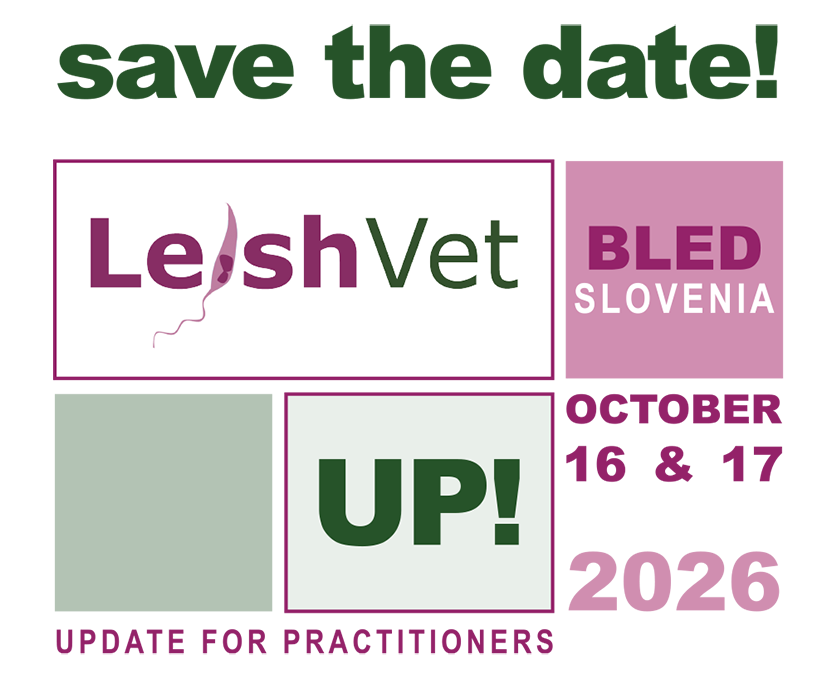
Why attend LEISHVET UP!
- Scientific event fully dedicated to Veterinary professionals
- Two days of interactive sessions to discuss the latest news on canine and feline leishmaniosis
- Focus on diagnostic approach, clinical cases, treatment and preventive measures
- Topics discussed from real clinical cases
- Internationally recognised speakers available for discussion with you!
- Wonderful location, affordable registration, economic accommodation available close to the event site
- Interesting social program!
BrasiLeish. XXV Simpósio Internacional de Leishmaniose Visceral Canina
Pilar Vidueira
BrasiLeish. XXV Simpósio Internacional de Leishmaniose Visceral Canina
November 23-24, 2024
Belo Horizonte, Brazil
Visit the event site for more details
The XXV Edition of the BrasiLeish Congress, united 500 attendees coming from different States of Brazil and other Latin American Countries. During the two days of conference, Gaetano Oliva presented 3 lectures as President of LeishVet. The first one on Human Leishmaniasis in Europe, the second one on the LeishVet Canine and Feline factsheets and the third one on “complicated” canine clinical cases.
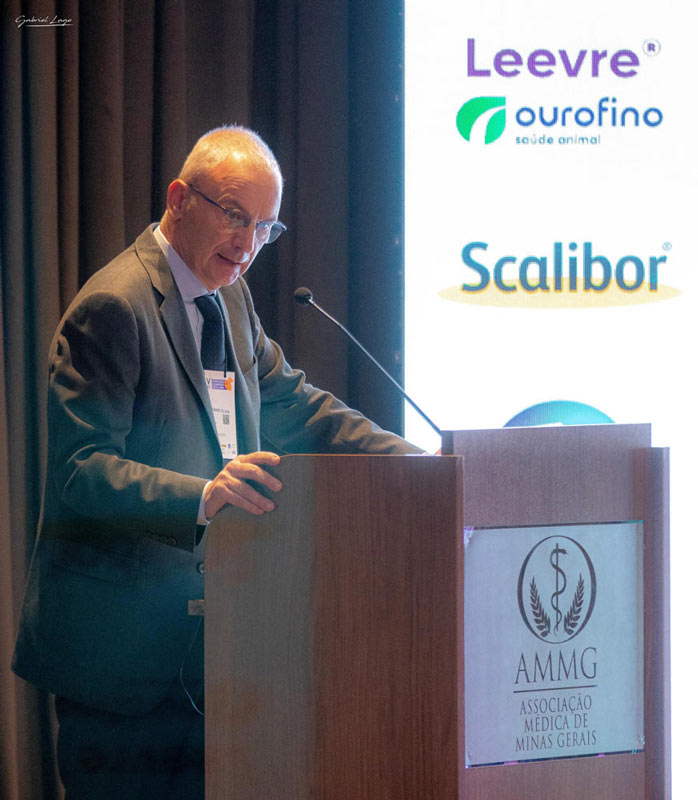
29th FECAVA Eurocongress
Pilar Vidueira
FECAVA. Hellenic Companion. Animal Veterinary Congress HVMS
September 12-14, 2024
Athens, Greece
Visit the event site for more details
The LeishVet group was invited to the 29th FECAVA Eurocongress. During the event, the LeishVet members participated in two roundtables regarding the Diagnosis and Treatment of Leishmaniosis.
ALIVE 2. A successful event celebrated in Nice, France
Pilar Vidueira
ALIVE 2 Congress (Animal Leishmaniosis International Veterinary Event)
April 18-20, 2024
Nice, France
Visit the event site for more details
We’re delighted to share the resounding success of the ALIVE 2 Congress (Animal Leishmaniosis International Veterinary Event), hosted by the LeishVet group, which took place in the beautiful city of Nice from April 18th to 20th, 2024.
The event’s international scope brought together 239 attendees in person and an additional 212 participants online, representing 32 countries. It was a fantastic opportunity for researchers, practitioners, and dermatologists to gather and exchange knowledge.
Throughout the congress, attendees had the privilege of hearing from esteemed speakers in the field and engaging with a wide range of research presentations, both oral and poster-based.
We extend our heartfelt gratitude to our sponsors and donors – ELANCO, LETI PHARMA, VIRBAC, CEVA, BOEHRINGER INGELHEIM, IDEXX, ECUPHAR, ESCCAP, PETIA, and the Département des Alpes-Maritimes – for their invaluable support. Additionally, we thank the members of the Scientific Committee for their dedication, the Key Note Speakers for their expertise and contribution and all participants for their enthusiasm to make this event a success.
The ALIVE 2 Congress provided an inspiring platform for collaboration and learning, and we’re already looking forward to future opportunities to continue advancing research and clinical management in the field of leishmaniosis.
Gaetano Oliva
President of LeishVet and the Organizing Committee
ALIVE 2, 2024 to be held in Nice
Alive 2, 2024 @ Nice, France
ALIVE's second edition will take place in Nice, France
The Organizational Committee for ALIVE has chosen Nice for this second edition. ALIVE 2 (Animal Leishmaniosis International Veterinary Event) will be held from the 18th to the 20th of April, 2024.
The iconic city of Nice has been chosen for its kind weather, its famous savoir faire, its beautiful location on the Côte d’Azur and the great connections and services that it offers for, once again, what will be an outstanding event.
The pleasant temperatures of Nice at this time of the year, from 14º to 18ºC and the many hours of sun will certainly allow all our international attendees to enjoy a walk down the Promenade des Anglais and even a swim in the sea.
The Côte d’Azur International Airport, serves over 12 million passengers annually and it offers 114 direct flight destinations, operated by 57 companies, regularly travelling to and from 43 countries.
The Organizational Committee can count on a group of event professionals that will help ALIVE 2 become a successful and inspiring scientific event.
We look forward to seeing you in Nice!
Lluís Ferrer becomes Consultant Member of LeishVet
Pilar Vidueira
Last December the LeishVet group met at a dinner in honour of Lluís Ferrer, founding member of the Association. Lluís Ferrer will stay on as a Consultant Member, sharing with LeishVet his valuable knowledge and expertise.
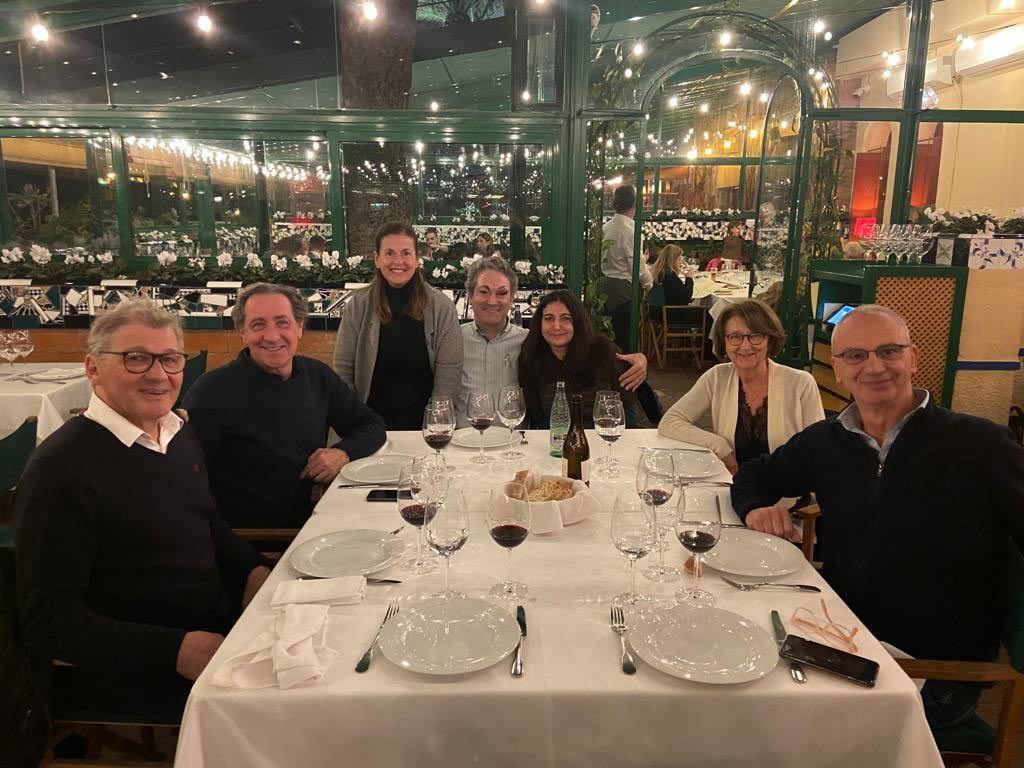
Sponsor's Meeting. December 2022
Pilar Vidueira
The annual meeting with LeishVet sponsors was held last December in order to discuss the current situation of the Association, the activities planned for 2023, as well as the new organisation of ALIVE in 2024.
